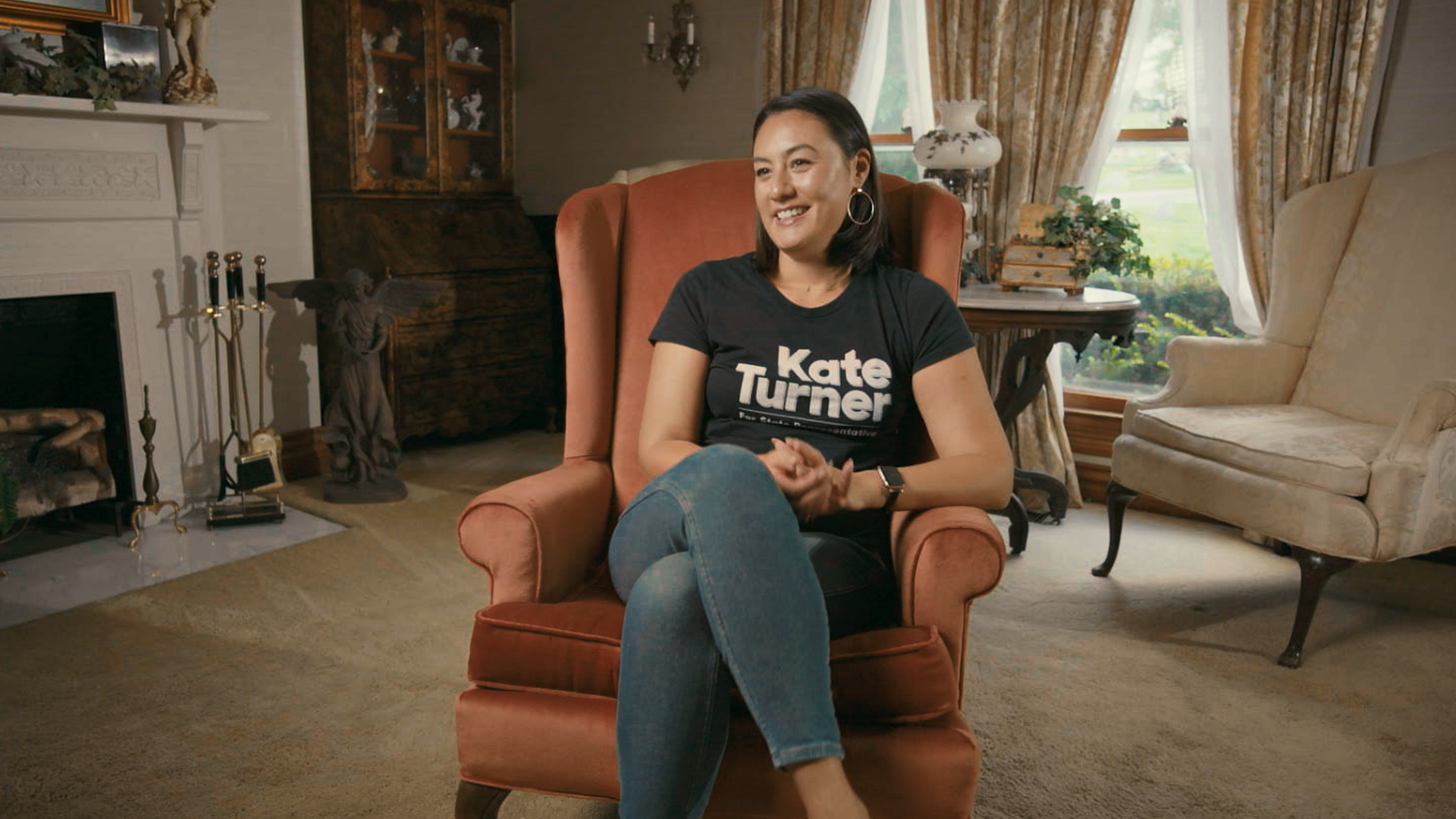Down-ballot races have taken on new prominence after the Supreme Court’s reversal of Roe v. Wade, making state legislatures increasingly crucial to the fight for reproductive rights, especially in Republican-led states where trigger laws banning most abortions quickly went into effect. In Kentucky, which has a near-total ban in place, abortion rights will literally be on the ballot, with an anti-abortion measure similar to the one Kansas voters recently defeated. But Democrats will also get the chance to build power at the local level, chipping away at the GOP’s longtime grip on state legislatures.
Kate Turner, the Democratic nominee for Kentucky House District 33, is running in Louisville against Republican incumbent Rep. Jason Nemes, who has held the seat since 2017. Turner, who’s campaigning on her support of reproductive rights and organized labor, is taking on an anti-choice Republican and corporate attorney who fought to protect local right-to-work laws. A member of the Pro-Life Caucus, Nemes has sponsored and voted for a number of bills attacking reproductive rights in the state.
Though the Louisville-based district leans Republican, Turner told More Perfect Union in an interview, it’s “definitely purple” and within reach. The district voted for Democratic Gov. Andy Beshear in 2019 and came within 400 votes of going blue in the 2018 midterms. Turner is campaigning primarily on economic justice issues like health care and education, and is a vocal supporter of workers in active labor fights across the state. Her campaign, and decision to run for office, Turner said, have been deeply influenced by her personal experiences with America’s dysfunctional health care system.
Turner, a civil and environmental engineer, decided to pursue engineering because of the job stability she believed it offered. But she’s been laid off three times over the course of her career so far. “Right as I graduated from college in 2010, there were some reverberations from the financial crisis in 2008 and the engineering firm that I was working for laid me off,” she said. “I was very lucky that I was still able to be on my parents’ health insurance at that time because the Affordable Care Act had just passed. And that crystallized for me why it was so important that your health insurance should not be tied to your job.”
Turner was laid off from her job working for a makeup brand during the pandemic, and then from a separate job this summer. “It was devastating,” she said. “I didn’t know when I would find work again. I didn’t know when retail was going to pick up again. And I lost my health insurance again. This time I couldn’t just hop back on my parents’ health insurance because I was 32 and so I moved in with my family. I had to either break into my retirement account or move in with them.”
The state of reproductive health care in Kentucky has also been a powerful motivating force for Turner’s campaign. “Health care includes reproductive care, the full spectrum of reproductive care,” she said. Kentucky is among the roughly half of states that moved to severely restrict abortion or are expected to do so after the reversal of Roe. An appellate court recently reinstated the state’s trigger law, which includes both a complete abortion ban and a six-week ban. The ACLU of Kentucky has said the restrictive law “eviscerates reproductive freedom” in the state. The Supreme Court’s ruling enraged Americans across the political spectrum, and Democrats believe the brewing backlash could galvanize voters in the midterm elections. Like many other Democratic candidates, Turner has put the issue of abortion rights at the forefront of her campaign.
“I am meeting a lot of people, particularly Republican, Independent women, and some men as well, who believe that the abortion ban in the state has gone too far,” she said, adding that she has been talking “very openly” about her decision to pursue IVF treatment outside of Kentucky.
Turner’s campaign has been backed by Planned Parenthood and a range of local labor groups, including the Greater Louisville Central Labor Council, Kentucky AFL-CIO, United Auto Workers Local 862, and IBEW Local 369. “Kentucky has a very rich history of labor organizing,” Turner said, adding that the state House was the last Democratic legislative chamber to flip in the South, in part, because of labor.
Before entering office, Nemes worked to protect right-to-work laws at the local level. After Republicans won a governing trifecta in 2017, Kentucky put its right-to-work law into effect, which eliminated the requirement that workers represented by a union join and pay dues to the union in the private sector. But before Kentucky passed the statewide law, the right-to-work battle happened on a county by county basis. And Hardin Fiscal Court hired Nemes, a private attorney who has worked at corporate law firms, to represent the county against a legal challenge to the local ordinance. The lawsuit, which was filed by nine labor unions, said the ordinance was a violation of the National Labor Relations Act. Nemes served as lead counsel for Protect My Check in Kentucky, an advocacy group that advanced right-to-work by helping local governments that passed their own laws.
In sharp contrast to Nemes, Turner has used her platform to advocate for workers’ efforts to establish a union. Heine Brothers’ Coffee, a local coffee chain in the Louisville area, has been escalating its union busting by closing unionizing stores. One of the more popular locations, the Douglass Loop shop, was shut down unexpectedly with no notice. “And it was one of the locations that had folks who were organizing with SEIU, some of the strongest organizers were at this location,” Turner said. The momentum among baristas and other service workers trying to unionize is growing nationally and in places like Louisville.
“These are folks that are fighting for good paying jobs with dignity and benefits and health care, jobs that are going to allow them to take care of their families and put food on the table,” Turner added. “And unions are the best way for workers to be able to organize and fight for those rights.”



